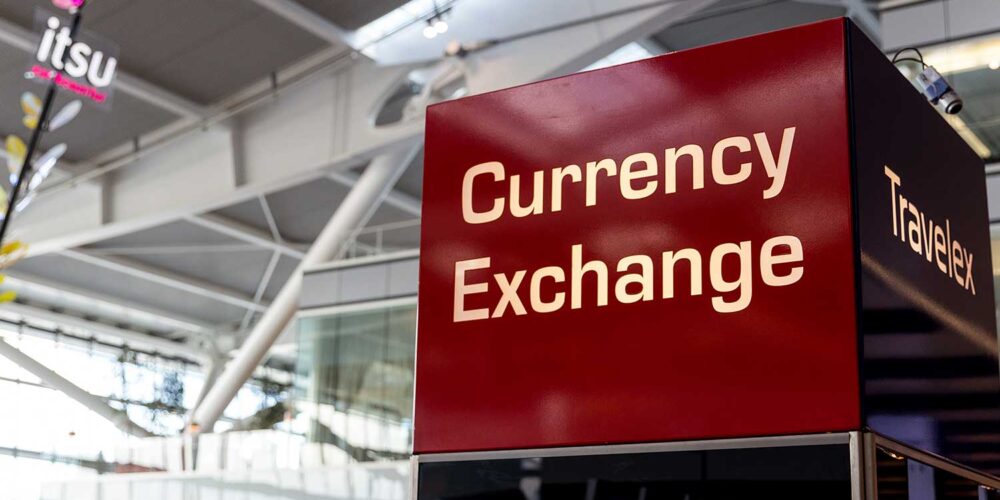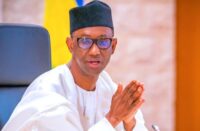9 min read
Summary: The primary role of Bureau De Change around the world is to ensure forex supply to the forex market’s critical retail sector, bridging the gap between official and parallel market exchange rates. In essence, Change (BDC) industry is vital to Nigeria’s economic growth and wealth creation. To streamline the country’s foreign exchange, the Central Bank of Nigeria (CBN) should transform BDCs into more formal, effective, efficient, strong, and vibrant financial institutions that are closer to commercial banks by combining large operators that follow the rules.
It takes a courage for some one to make a decision. And as the saying goes, Action may not always bring happiness; but there is no happiness without action. Taking a bold, bitter but best decision for the well being of all may bring some discomforts to certain groups of people which is normal, but that discomfort is transient, with time it will pass and those affected would soon adjust and move on with their lives.
In a bid to streamline the nation’s Foreign Exchange (FOREX) market and bring sanity to the system, the regulatory body of financial institutions and designated non-financial businesses and professions (FIs & DNFIBPs), the Central Bank of Nigeria, CBN, have boldly suspended Bureau de Change (BDCs) operators in the country from accessing the Whole Sale Dutch Auctions (WSAs) thus, the Weekly allocation of dollar to BDC. BDCs have now left with only one source of dollar for their operations, that is the autonomous source.
BDC industry is a critical sector in the country’s economic development and wealth creation. According to the President of Association of Bureau De Change Operators of Nigeria (ABCON), Aminu Gwadabe, the sector has over N250 billion worth of investments in the economy, contributing immensely towards the development of country’s gross domestic product (GDP) pool, a source of revenue to the government and employment opportunity to our teeming youth.
The primary role of BDCs globally is to ensure forex availability to the critical retail sector of the forex market in terms of supply, to bridge the gap between the official and parallel market exchange rates. They are to make dollar accessible for citizens to meet up their formal expenditures especially, the miscellaneous and invisible payments such as the Business traveling allowances and Personal traveling allowances (BTA/PTA), International tuition and School fees as well as medical bill payments.
Regulating BDCs in Nigeria has become extremely difficult for the CBN and other related bodies such as the NFIU. This has to do with so many reasons among which are the volume of BDCs operating all over the nation and the status of the operators-majority of the operators are illiterates or semi-illiterates and couples with the activities of unlicensed BDCs. This and many other circumstances make the task of regulators very tough; all attempts to bring them onboard proved abortive. As it is, apart from filing documentation for re-issuance of forex, more than 50% of them are not filing and rendering other statutory and regulatory returns to the regulatory and supervisory bodies especially the CBN and NFIU.
From 2007 to 2019, Nigeria have undergone two (2) mutual evaluation assessment. The process is a kind of peer review mechanism, where member countries assess another country’s financial system so as to analyse the level of technical compliance and effectiveness of its system, with a view to protecting and preventing criminal abuse of the financial system as well as focused recommendations and measures to the country to further strengthen its system. The outcome of this assessment has always rated Nigeria as “Non-compliant” (NC) in most of the key and core areas including, the Supervision and Monitoring that is needed to score high, simply due to the activities of BDC operators. Any stranger goes to Wuse Zone 4 in Abuja will be surprised with the way exchange business is being conducted. Hundreds of unregulated operators are seeing littering on the street which is not the best practice in any jurisdiction.
Despite their critical importance to the economy, BDCs operation have become hard and top to Nigeria and Nigerians; while few of the operators are smiling, the majority of Nigerians are suffering for the turbulent condition of dollar which make lives unbearable, and BDC are part of this turbulent. Instead of bringing liquidity to the system, apparently the dollar is always becoming scarce while its value keeps on skyrocketing. In 2006, the number of BDC operators in the whole country was a little over Two Hundred (200) and the value of Naira to a dollar was about N120 but according to the CBN, today the number of licenced BDC operators in the country have shoot upward to Five Thousand Six hundred and Eighty-Nine (5,689) as at 30th June, 2021, this is in addition to thousands of unlicensed ones operating under different associations and umbrellas. The value has imaginary skyrocketed from N290 in 2015 to over N500 per dollar in August, 2021.
One would wonder why the number of these unproductive BDCs keep on booming and shooting upward? This has nothing to do with the high demand of dollar by the public but, rather due to the insider dealings and other negativities and shoddy dealings. More than half of these licence BDCs don’t exist or operate in the market, they are only on paper. They are owned by big men within and outside the government realm. Unconfirm source revealed that there is a former governor that have more than 100 BDCs in his possession, what is he doing with them? it is obvious that big men are using these BDCs to source dollar from the CBN so as to easily convert the stolen funds from the government treasury-thereby laundering public funds and later integrate them into the system.
The CBN sells estimated $5.7billion dollars annually to over 5000 BDCs, while the importers, particularly the manufacturers are struggling to access forex needed to import raw materials. That is why Nigeria’s foreign reserve keep on dwindling simply because of the number of BDCs putting pressure on it, while the source of dollar for the government remained relatively same-thus the sales of Petroleum product and international money transfers by some Nigerians in diaspora etc. That’s is why all the measures and efforts put in place to bring the dollar down remained fruitless.
Narrating some of the reasons for the suspension, CBN stated that, BDCs have turned themselves away from their objectives; and there are concerns that many of them have allowed themselves to be used as conduits for graft and other illegal activities such as money laundering, terrorism financing, round tripping, money mules, Informal Hawala, illicit financial flows, rent-seeking and hoarding of forex. For instance, it is as easy as ABCD for one to change or comvert as many currencies as possible with BDC. You can step into any BDC office of your choice with a Ghana-most-go bag full of Naira or any denomination of currency for exchange, and within the shortage possible time, the operators will mop-up and convert these money into dollars without any proper documentation; and the disheartening thing is that these transactions would never be reported to regulators neither as CTR nor STR- by so doing, BDCs are facilitating and aiding criminals to launder illicit funds.
For decades majority of these BDCs don’t comply with laid down rules and regulations governing the purchase and sale of Forex to prospective customers. They obstruct and breach the extant laws such as the Money Laundering (Prohibitions), Act; the BOFIA Act; CBN-AML/CFT Regulations and other related guidelines and circulars that makes it mandatory for them to submit returns of every threshold-based transaction, suspicious transaction reports including report on the sale of PTA and BTA etc. Many of those that render returns on PTA and BTA for subsequent reallocation of Forex are filing fake documents and summit same as returns. Just recently, many commercial banks have reported this anomaly to the CBN. They lamented that many customers are issuing fake documents, expires passports and open tickets etc. for PTA and BTA access which is a serious issue. This have been going on with BDCs and CBN did nothing to curtail it, something is suspicious here.
Through the informal Hawala conducted by many of these operators, there could be a possibility of transferring and circulating of funds aimed at funding or facilitating Boko-haram activities and other terrorist organisations operating in Nigeria and neighbouring territories. For example, describing the trends and patterns of the business, some sources revealed that, many of these operators are mixing forex trading with gold business. The business involves chain of processes involving many jurisdictions. They purchase raw and second-hand gold and jewelleries from different sources, melt it and; source Euro and CFA through merchants in countries like Chad, Cameroun and Niger Republic. Together they transport them to Dubai for conversion into dollar and dirham. After conversion of these products into dollar and dirham, they sold same to merchants mostly Nigerian traders that travel to Dubai, China, India and Hong Kong for business and in return the merchants will transfer or instruct their boys in Nigeria to give them Naira equivalent of the dirham or dollar they sold to them-thereby through this chain and pattern of transaction they laundered any possible illicit fund.
When majority of the BDCs hoard forex and round-trips for the selfish purposes of exploiting Nigerians by creating artificial scarcity, the essence of funding the BDCs by the apex bank has been defeated—it becomes drainpipe used by economic saboteurs to suffocate the economy.
The CBN has it is share of blame in these whole shenanigans. It is very unfortunate for the apex bank with all the powers bestowed on it yet could not maximise such power to optimally regulate this sector. It is either they are reluctant, unwilling to regulate them or there could be a sabotage and insider dealings. Instead of banning these BDCs, they should wade their powers on them by sanctioning or even prosecuting every erring BDC. The sanction could either be financial penalties; suspension from operation for a specific period, complete revocation of their operation licences or even prosecuting them to court. This will serve as deterrents to others.
Some of the CBN policies also did not in anyway help in alleviating the problem. For instance, between 2016 and 2018 the bank adopted so many inconsistent policies limiting the withdrawal and spending of dollars. This has negated and affected many businesses in Nigeria. Though the method was adopted as a measure, at the dollar-crunch which was caused by a drop in crude oil prices, leading to the country’s recession in 2016. Yet the decision was so unpopular, it caused a lot of hardships to the populace which made them to bend the process. Many travellers had devised a means of getting more dollars for their businesses. They employed the idea of opening a number of fictitious accounts so as to have as many ATMs as possible which they used to withdraw dollars through ATMs and POS machines when they travel outside of the cluntry for their legitimate businesses. This has led to several arrest of travellers at the airports by the Law enforcement agencies such as Customs and EFCC, they were arrested for finding to have stocking thousands of ATMs, but in essence they did not breach any of the country’s extant laws. They only tried to mop-up more dollars which the CBN pegged the limit of its withdrawals; therefore, with hundreds of ATMs one can meet up his demand on the amount he may need to buy stuffs from other jurisdictions.
Now, having given the whole responsibility of issuing currencies to retail market to commercial banks, it is our hope that we would not return to the previous issue encountered which led to the coming of BDC into place, that is the administrative bottleneck. Previously when the banks were the sole body issuing forex to the public, prospective customers encountered challenges of getting Forex from commercial banks due to the rigorous administrative process, that made it uneasy for prospective customers to access Forex when needed. Banks should try and made the process as easy as possible by deploying the needed infrastructures that will ease and facilitate the business process.
On the other hand, I am seeing the decision to ban or suspend BDCs from accessing forex as a temporary. It is on record sometimes in 2016 BDCs were banned from accessing forex but later the decision was reversed. CBN should reconsider its decision and think of bringing a lasting solution to the problems and issues raised. As it is, the ban could only solve one aspect of the numerous reasons behind the suspension. BDCs can still access forex from the autonomous window which is more than 70% of their source. Therefore, the banning will not in any way stop the illicit activities associated or mentioned by the CBN which led to the banning. Besides, not all the BDCs are bad, there are few that are adhered to the laid down obligations. CBN should therefore think of how to turn BDCs into more formal, more effective, efficient, strong and vibrant financial institution closer to commercial banks by merging the big operators who are compliant with the led down regulations. Instead of having 5000 to 7000 BDCs let the CBN adopt merger and acquisition measure to downsize the number to certain reasonable numbers, so as to operate optimally. The small number would also make the supervision and regulation task very easy to regulators.
CBN should therefore look into the possibility of engaging the leadership of BDCs with a view to resolving all the issues that led to the ban and proffering a lasting solution to the problem. Finally, the operators should see the CBN pronouncement as a wakeup call and an opportunity to widen their customer base and deepen their business. The leadership should also engage their members to bring them up to the task, sanitize them to follow the due process and all the laid down rules and regulations governing BDC operation in Nigeria.
Recommendation(s):
• The CBN should investigate the possibility of engaging BDC leaders to resolve all of the problems that led to the ban as well as provide a long-term solution to the problem.
• The CBN’s announcement should serve as a wake-up call for operators, as well as an opportunity to expand their customer base and grow their business.
• The leadership should also involve their members to prepare them for the task and to sanitize them so that they follow the proper procedure and all of the rules and regulations that govern BDC operations in Nigeria.
Source: Facebook
Keywords: Government, Regulatory, Assessment, Economy, Operators, Money Laundering













